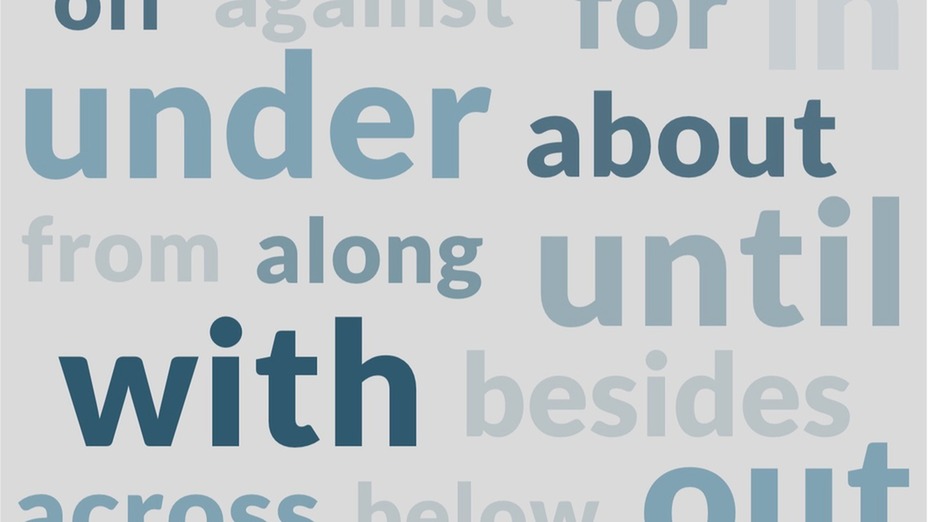preposition
noun
prep·o·si·tion
ˌpre-pə-ˈzi-shən 

: a function word that typically combines with a noun phrase to form a phrase which usually expresses a modification or predication
prepositionally
adverb
Love words? Need even more definitions?
Merriam-Webster unabridged











Share